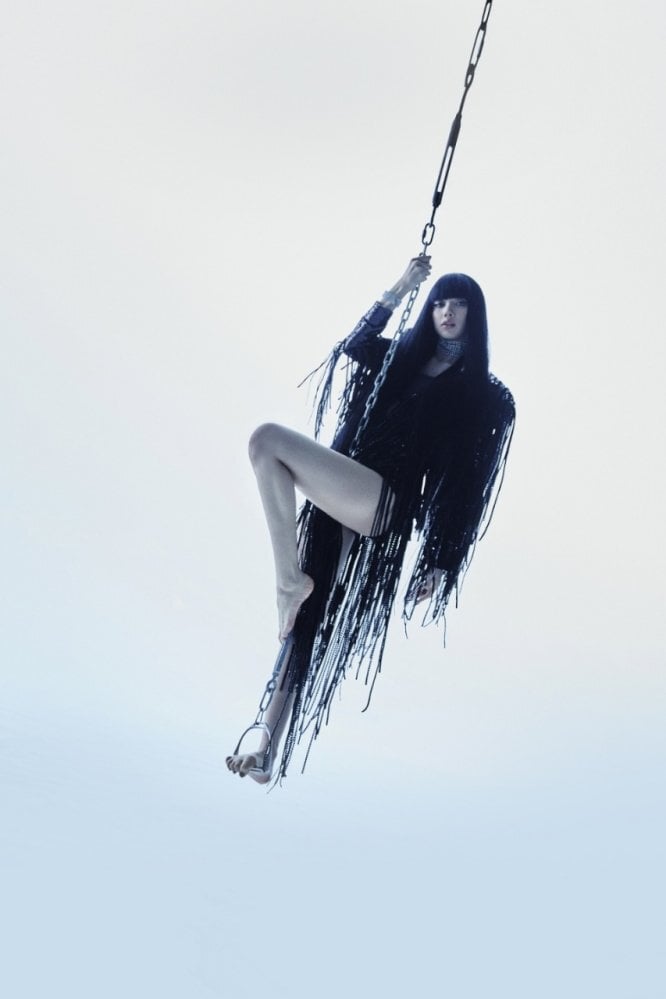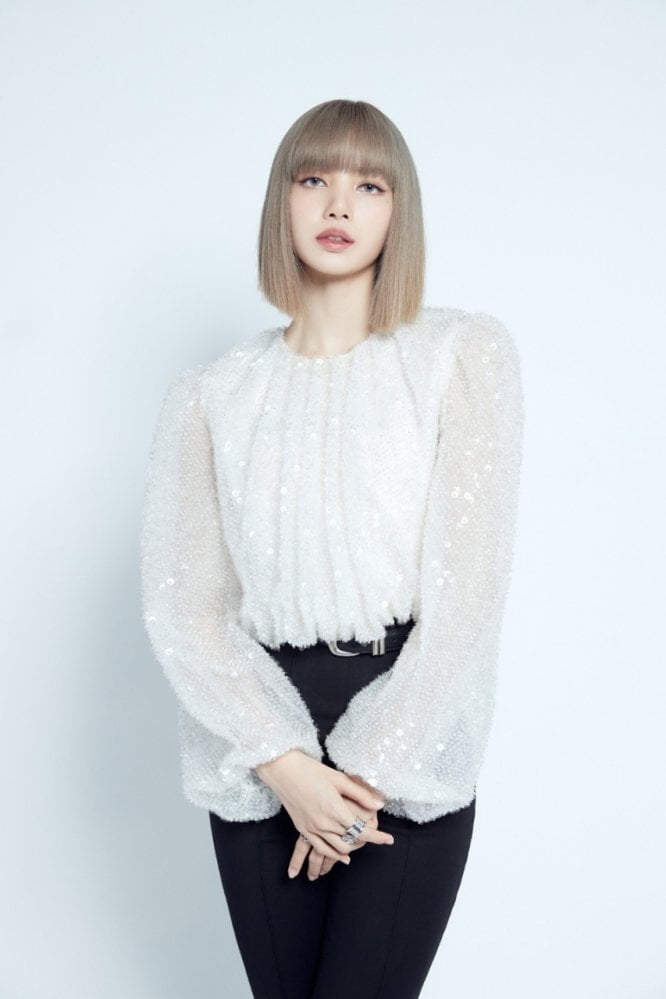
K-pop singer Lisa of Blackpink, full of confidence, talks about embracing her identity as Lalisa and her Thai heritage on her first solo single
- Lisa is not only the most popular K-pop star on Instagram (with 61.9 million followers) but a brand ambassador for some of the world’s biggest fashion houses
- She talks to the Post about her debut solo single Lalisa, the message she hopes fans will take away from hearing it and what she would say to her younger self
“From Thailand to Korea, and now here, went for the throat/Being the greatest of all time ain’t fantasy,” sings Lisa of Blackpink on her first solo single, Lalisa.
Lalisa Manobal, better known as Lisa, is one of the world’s biggest Asian stars, and she hypes herself up as such on the hip-hop-fuelled dance track and its B-side, Money – released together as a single album.
“I have been preparing for a long time,” she tells the Post. “I couldn’t believe it at first. I kept thinking, ‘Is this real?’ I think it hit me more when I started filming the music video.”

While Jennie’s Solo was a declaration of independence and Rosé’s On the Ground a show of creative ambition, Lisa’s Lalisa is a brashly confident self-love anthem. Her sleek braggadocio blends with her spitfire vocals and endearing charm as she takes centre stage as a charismatic pop star.
Thais can’t get enough of Blackpink Lisa’s favourite meatballs
“I’m incomparable, you gon’ still love me nonetheless,” she sings, lacing the lyrics with references to Blackpink’s success. The chorus is the stand-out, calling forth the attention she gets from fans: “Say, ‘Lalisa, love me, Lalisa, love me’/Call me, ‘Lalisa, love me, Lalisa, love me’.”
“It is an album that I worked on thinking of the fans who always have been believing and supporting Blackpink,” she says. “Lalisa is full of confidence. This is not only my album concept, but also a message that I want my fans to take away by listening to it. I hope we all love ourselves and be happy.”
The music video for Lalisa shows all the sides of the singer that fans have come to know and love, from a tweedy, urbanite-meets-girl-next-door moment to scenes where she is pole dancing and dirt biking with her crew.
Then Lalisa comes to a segment that breaks up the song, where – sat on a golden throne – she wears a golden outfit by Thai designer Asava and a multi-tiered headdress known as a mongkut.
In a connected dance break, she and her team of dancers perform on a Thai temple-inspired set and evoke classical Buddhist-inspired Thai dance moves, such as the hypnotic thousand hands dance, in a celebration of all things Lalisa. “I’m confident standing above the sky,” Lisa proclaims.

Lisa’s well-loved onstage confidence contrasts with her softer side and the sentimentality she drew on to incorporate her Thai roots in the music video.
“I thought I was a really small person compared to the love that the fans gave me,” she says, reflecting on the comment in the movie.

It’s hard to believe these two characters – one crying as she thinks of her supporters and the other, on a throne, demanding the love she deserves – are the same person. However, it fits with what Blackpink stands for: the duality of a modern female pop icon both strong and soft, charismatic and vulnerable.
For Lisa, the dichotomy is reflected in her background, too – born in Thailand’s Buriram province and raised by her mother and stepfather, she’s the only Blackpink member not of Korean descent. She is a K-pop star representing that industry and South Korea on a global scale, but she’s also her own person, with her own heritage and life to share.

With her heart set on becoming a K-pop star, Lisa joined prominent Korean music company YG Entertainment when she was 13. Six years later, Blackpink debuted in 2016 with Lisa as the youngest member.
Now 24, she is arguably the most popular Thai celebrity in the world – or certainly the most followed Thai person on Instagram, with over 40 million followers more than the next most popular Thai stars, BamBam and actress Davikah.
Because of her fame, Lisa says it was impossible to not focus on her heritage for her first solo effort. “I wanted to capture the path I walked,” she says, “and I wanted to let fans around the world know the beauty of Thailand.”

It’s with this love that a fan recently called out Lisa for a performance video of Money in which the star wears braids that look like box braids – an oft-discriminated against hairstyle mainly worn by people in black communities.
When a fan addressed the racially fraught hairstyle during an online fansign event, Lisa, in words rarely heard from K-pop stars, answered in an apologetic tone. “I didn’t know … I didn’t have bad intentions,” she said during the call. “I feel so bad. I’m very sorry someone got hurt … I’ll be careful from now on.”
Despite being the biggest star in her country, Lisa presents herself as more darling than diva and is forthright about her mistakes, embracing the many facets that make up the love-worthy Lalisa.
“I want to bring positive energy to Blinks [the collective name for Blackpink fans] all around the world so that I can [be] a good influence,” she says. “I want to be an artist who can give back love as much as I’ve been loved and that fans can be proud of.”
She also has a few words for her younger self, too. “I would like to say some inspiring words to young Lisa like, ‘Keep it up on your work, Lisa! You are doing a great job. You will shine like a star, so do your best!’”
